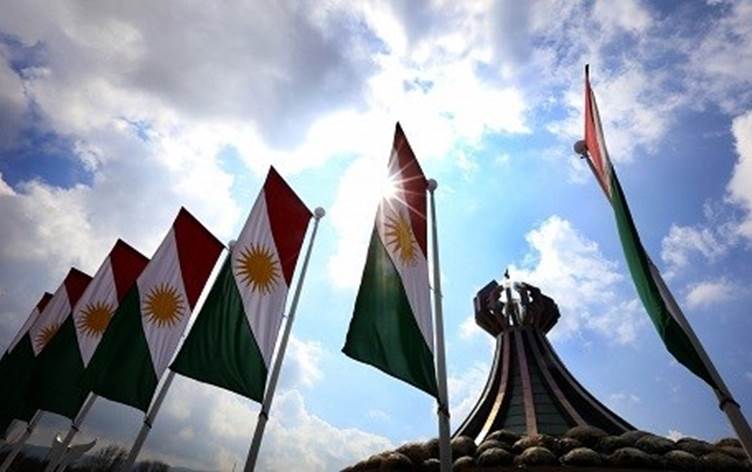ERBIL, Kurdistan Region – Kurdish President Masoud Barzani has declined a request from the head of the Arab League to reconsider the independence referendum, saying that Iraq is moving towards “a great danger” if the current arrangements between the Kurdish and Iraqi government remain.
“We have come to the conclusion that we are not welcome and not accepted as citizens and real partners,” the Barzani letter read, listing a history of genocide and denial at the hand of successive Iraqi governments since its foundation in 1920.
“That is why we do not accept subordination, and marginalization; and therefore, our friends in Iraq should be blamed [for this], not us, because they are the ones who pushed us [towards holding the referendum],” the letter continued.
Ahmed Aboul Gheit the Secretary-General of the Arab League had sent a letter to President Barzani calling on him to re-think plans to hold the September 25 referendum, as reported by the pan-Arab Asharq al-Awsat newspaper on Thursday.
Iraq is a founding member of the Arab league, and the current Iraqi constitution that came in effect in 2005 stipulates that it “commits to its charter.”
Iraq considers the referendum unilateral and unconstitutional. Prime Minister Haider al-Abadi has said they would not engage with the outcome of the vote.
“The referendum that is expected to be held will carry a negative message to the people of the Iraqi nation whom are non-Kurds, and opens the door in the way of disintegration and fragmentation, and increases the regional complexities,” Gheit said in the letter to President Barzani.
It went on to say that the referendum at its stated date comes at a “dangerous time” that requires more unity.
It warned that the September vote may force “all parties” to undertake tough decisions.
“Taking steps without national unity, and without coordination and approval of the government in Baghdad may in itself aggravate the situation and force all parties to take tough stances that do not serve the future of Iraqis, including the Kurds,” stated the letter from the Arab leader who represents 22 Arab states.
“While the Arab League is strongly keen on ensuring the territorial integrity of the Arab states ... it equally urges all of its member states to keep their promises with regard to the modern terms of citizenship and equality of the rights among all members of the same nation,” it concluded.
President Barzani said in response that staying in Iraq based on the current arrangements “poses a great threat, because we are moving towards conflicts that do provide comfort for either our Kurdistani and Iraqi nations,” the letter said, adding that the referendum will prevent this from happening. And it instead will result in a “fruitful cooperation, and we will become neighbours, allies and will become strategic depth for one another,” with Iraq.
Barzani said the agreement that resulted in the creation of Iraq after the World War I is called in the Arab literature a “colonial agreement,” and as such is also disliked by Arabs.
President Barzani said that the Iraqi state since its foundation in 1920s until the fall of the Baathist regime in 2003 and then for the last 14 years has offered the Kurds only suffering and genocide.
He reminded the Arab League that the Iraqi government killed 182,000 Kurdish people as part of the infamous genocide against the Kurds, Anfal, and 5,000 people in the chemical attack in Halabja, and destroyed 4,500 villages inhabited by Kurds.
Barzani said even after all these losses, the Kurds tried in 199, when Kurds stated an uprising against the then Iraqi regime, and in 2003 to reach a new settlement with the Iraqi government, but that Baghdad continued on the same path against the Kurds.
He said the people of Kurdistan decided to take part in the new Iraq that came about after the US-led invasion of Iraq, including rebuilding the Iraqi government, its army, and the writing of a new constitution for Iraq. But the Kurdish President said that Baghdad has since declined to implement all articles of the constitution that concern the Kurdistan Region.
The letter listed, among others, article 140 that concerns the issue of disputed, or Kurdistani areas, claimed by both Erbil and Baghdad that should have been implemented at the latest in 2007, but never materialized. It also said that the share of Kurds has since 2003 decreasing in the Iraqi military, security forces, and civil institution to “the level of none.”
Barzani’s letter concluded that Erbil will take the path of dialogue to reach an agreement towards achieving the rights of Kurds through self-determination and called on the Arab League to play an intermediary role in order to help the two governments to reach “better results” in the talks that are expected to take place regarding the referendum.
Barzani also met with journalists from Kuwaiti newspapers on Thursday in Erbil, explaining the Kurdish position on the referendum.




Comments
Rudaw moderates all comments submitted on our website. We welcome comments which are relevant to the article and encourage further discussion about the issues that matter to you. We also welcome constructive criticism about Rudaw.
To be approved for publication, however, your comments must meet our community guidelines.
We will not tolerate the following: profanity, threats, personal attacks, vulgarity, abuse (such as sexism, racism, homophobia or xenophobia), or commercial or personal promotion.
Comments that do not meet our guidelines will be rejected. Comments are not edited – they are either approved or rejected.
Post a comment